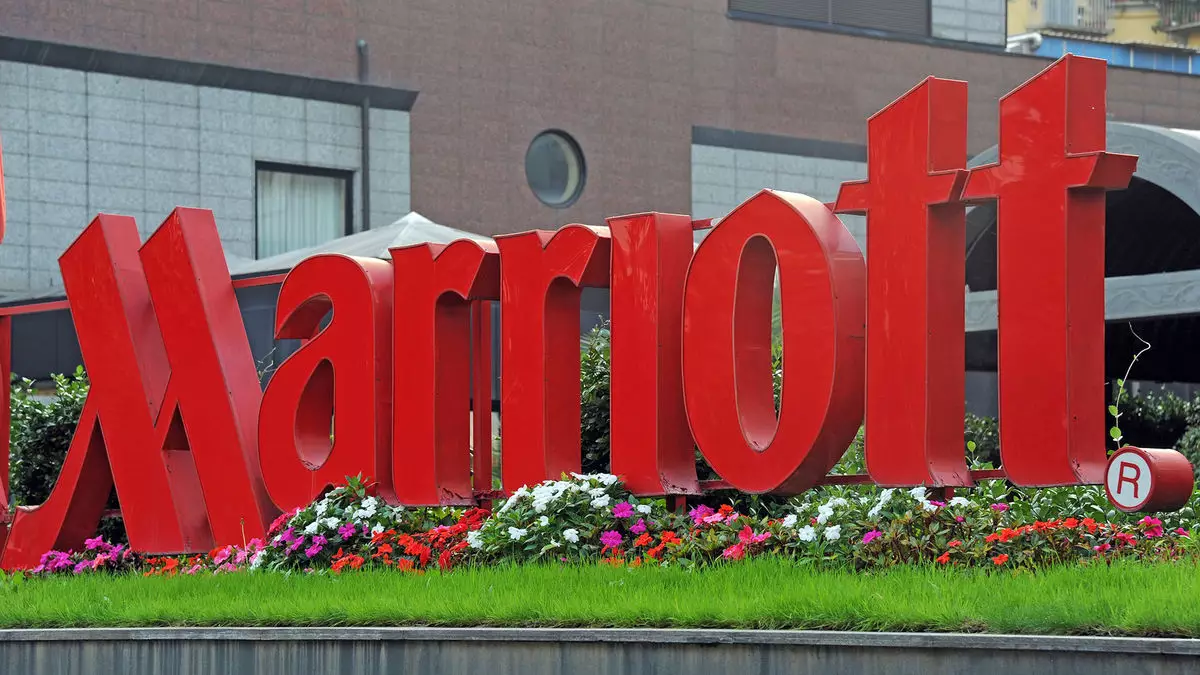In a thought-provoking revelation during its Q3 earnings call, Marriott International disclosed potential ramifications of the impending U.S. presidential election on the company’s financial performance. The insights shared by the company’s executives, particularly CFO Leeny Oberg and CEO Anthony Capuano, pave the way for a broader conversation about the interplay between political events and corporate profitability, especially in the hospitality sector.
Marriott’s outlook for the final quarter of the year underlines a pressing concern: that the political climate leading up to the elections is likely to depress demand for hotel accommodations, specifically within the U.S. and Canadian markets. This concern wasn’t merely speculative; Oberg projected a 3% reduction in the company’s revenue per available room (RevPAR) in November alone, a trend that would reverberate into the entirety of Q4, translating into an anticipated overall drop of 1% in RevPAR.
The magnitude of this predicted impact is particularly noteworthy, being nearly double that observed during previous election cycles. Such a stark contrast serves as a wake-up call for industry experts and stakeholders alike to monitor the correlation between political events and economic activities—an aspect often overlooked.
The Group Business Dynamics
A salient point raised by Capuano emphasized the delicate state of Marriott’s group business, which represents a critical revenue stream for the company. By the end of September, the company’s global revenue from group bookings remained static, with the election looming large over the prospect of business gatherings and conferences. This stagnation, juxtaposed against the previous growth trajectory in this segment, raises questions about the management’s ability to adapt to an ever-shifting market landscape.
Historically, group sales have been pivotal for Marriott’s financial health, demonstrating a consistent rebound post-recession periods. Nevertheless, as the company anticipates a 7% increase in group revenue for 2025—driven chiefly by a rise in both room nights and average daily rates—it is clear there is optimism. Yet, this hopeful narrative stands in stark contrast to the challenges posed by current electoral tensions.
The analysis of Marriott’s performance reveals noteworthy trends in various hotel segments. For instance, the rise in RevPAR for luxury and full-service hotels indicates that even amidst broader economic uncertainties, the high-end market continues to thrive. This could suggest a bifurcation of consumer spend, where economic shifts prompt travelers to either scale up their experiences or retract entirely. In either case, the dynamics at play necessitate a robust strategy to harness and adapt to these spending patterns.
Meanwhile, the leisure segment, despite showcasing flat RevPAR, still sits above pre-pandemic levels, affirming the resilience of leisure travel. Yet, the narrative around business travel diverges, with reports indicating growth momentum—particularly through a 2% increase in business transient RevPAR. This distinction points to varied recovery trajectories within the market, presenting unique opportunities and challenges for management.
With an impressive 5% RevPAR growth reported outside the U.S., especially across Europe, the Middle East, and Asia Pacific, Marriott appears well-positioned on the international front. However, the stark 8% decline in Greater China serves as a reminder of the volatility that can arise from macroeconomic pressures and environmental challenges. The interplay of global markets, influenced by factors ranging from currency fluctuations to local demand, underscores the interconnectedness of Marriott’s international operations.
As Marriott faces a complex landscape shaped by an upcoming presidential election, the company’s leadership is called to navigate unfamiliar waters. The anticipated decline in RevPAR due to political uncertainty, coupled with fluctuating performance across various market segments, necessitates a keen focus on adaptability and strategic foresight. In an era where external factors increasingly dictate corporate fortunes, Marriott’s ability to pivot in response to such events will likely determine its short-term resilience and long-term success in the hospitality market.


Leave a Reply